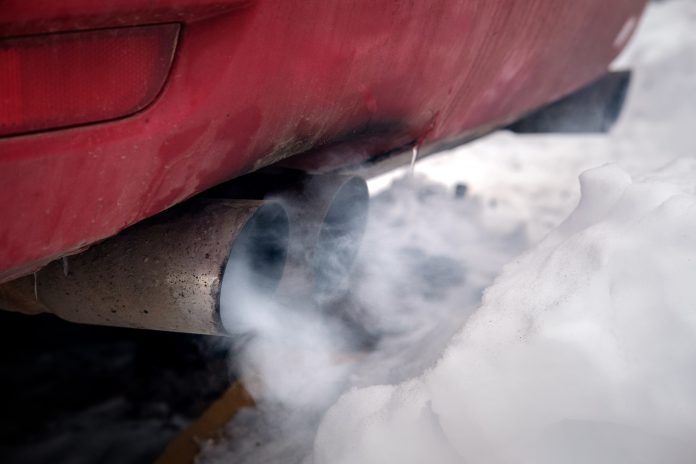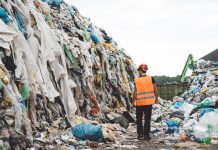Here, we delve into the European Commission’s work on the European Green Deal and its first European Climate Law to enshrine the 2050 climate-neutrality target into EU law
Already holding the position as First Vice-President of the European Commission, in charge of Better Regulation, Inter-Institutional Relations, the Rule of Law and the Charter of Fundamental Rights since 2014, in December of 2019, Frans Timmermans was also appointed Executive Vice-President for the European Green Deal. He is responsible for leading the Commission’s work on the European Green Deal and its first European Climate Law to enshrine the 2050 climate-neutrality target into European Union (EU) law, among many other duties all under the heading of the Green Deal.
Timmermans was entrusted with this new mission by the European Commission President Dr Ursula von der Leyen to lead the work on the Green Deal, which should be presented in the first 100 days of their mandate, and is the “greatest challenge and opportunity of our times”. She stated in her political guidelines that “along with our climate-neutrality commitments for 2050, we have to be more ambitious when it comes to our 2030 emission reduction target. This should increase to at least 50% by 2030, up from the 40% currently agreed.”
Carbon Border Tax
Timmermans missions include coordinating the zero-pollution ambition, reducing the carbon footprint of the EU’s transport sector, the circular economy and the new ‘Farm to Fork’ strategy for sustainable food. The President goes on to state, “I want you to ensure that our tax policies enable us to deliver on our climate ambitions. This will include the work on the Carbon Border Tax, as well as the review of the Energy Taxation Directive. Cutting across all of the above issues is the need to focus on enforcement and implementation of legislation on climate, energy, environment, and all other relevant policies.” (1)
Towards a Sustainable Europe by 2030
In response to his mission letter, Timmermans confirmed that he will do everything he can to oversee and carry out these tasks. “The Green Deal portfolio that I have been assigned by President-elect von der Leyen is one that I welcome very much, representing the responsibility and the opportunity to shape the transformative agenda that our continent and planet desperately need. The facts about climate change are undeniable, but, as written in the Commission reflection paper ‘Towards a Sustainable Europe by 2030’ they should not instil in us worry and fear but inspire us to act instead.”
Cooperation
The European Green Deal can only work if it leaves no one behind and brings people along and supports the most affected by the transition towards climate neutrality, such as those in industrial, coal and energy-intensive regions. While many citizens clearly support this policy action to tackle climate change overall, Timmermans recognises that individual measures can often face resistance. And as we know, not all Member States and regions start from the same point in the transition to a green economy. More than 8 million Europeans are employed in carbon-intensive sectors, such as the manufacturing of chemicals, mineral products and basic metals. As a result, Timmermans will coordinate the work on the new Just Transition Fund in anticipation of the structural and social change required to accompany the modernisation of EU industry. This Fund will complement the existing instruments, concentrating on the social consequences of the transition, and enabling the most affected regions to support economic diversification and modernisation. It will notably help to fill the gap between existing skillsets of the regional workforce and the skills required in growing and transforming sectors. It should be a powerful instrument effectively supporting the people and communities most affected by the low carbon transformation, including those in industrial, coal and energy-intensive regions, and is therefore absolutely integral to the success of the Green Deal.
World’s first climate-neutral continent
Timmermans summarises the end goal of the Green Deal here: “At the heart of it is our commitment to becoming the world’s first climate-neutral continent. It will require collective ambition, political leadership and a just transition for the most affected.” (2) Evidently, the world knows that climate change is an issue that leaders need to tackle and that we need a major rethink of our economic model. The aim is to show that the European Green Deal is good for economic growth, good for job creation, good for trade, and good for exporters, then industry and leaders around the world will be convinced that it is the right investment to make, also to the benefit of citizens with clean and efficient public transport, or with cleaner air and less pollution in rivers and oceans.
References
https://ec.europa.eu/commission/commissioners/sites/comm-cwt2019/files/commissioner_mission_letters/mission-letter-frans-tim-mermans-2019_en.pdf
https://ec.europa.eu/commission/commissioners/sites/comm-cwt2019/files/commissioner_ep_hearings/answers-ep-questionnaire-timmermans.pdf











